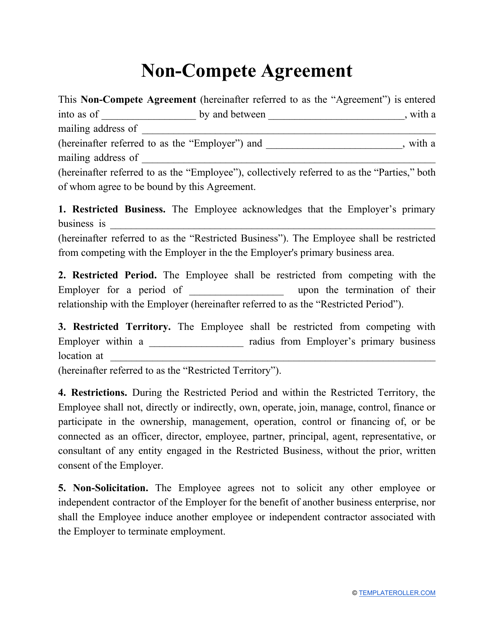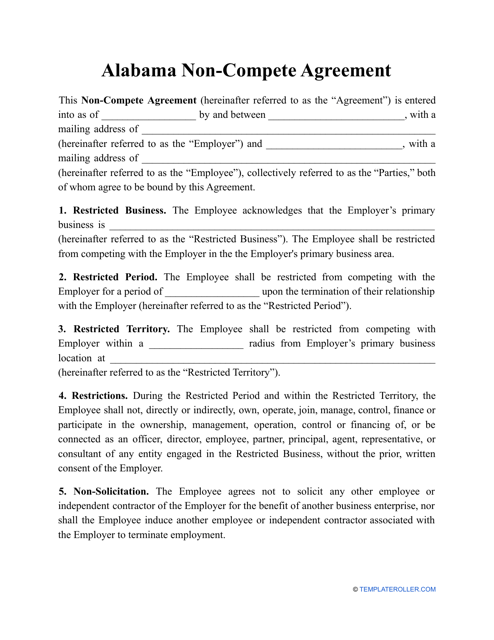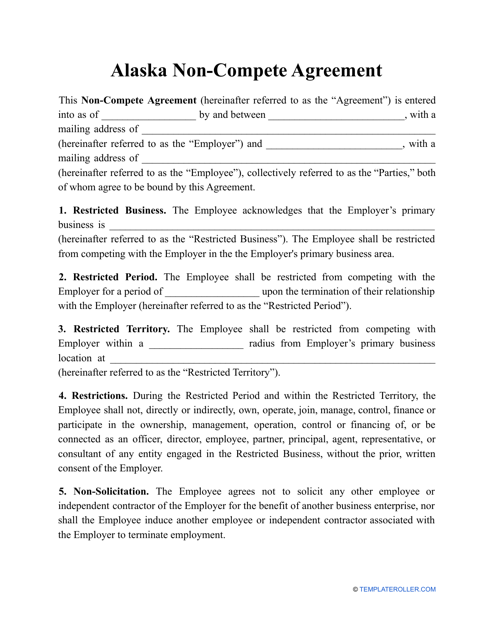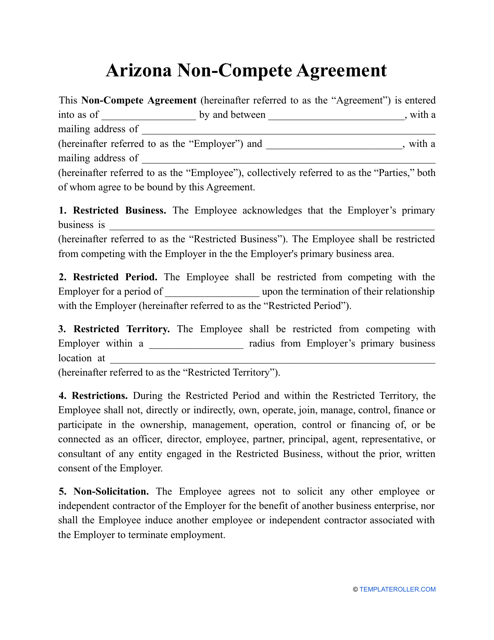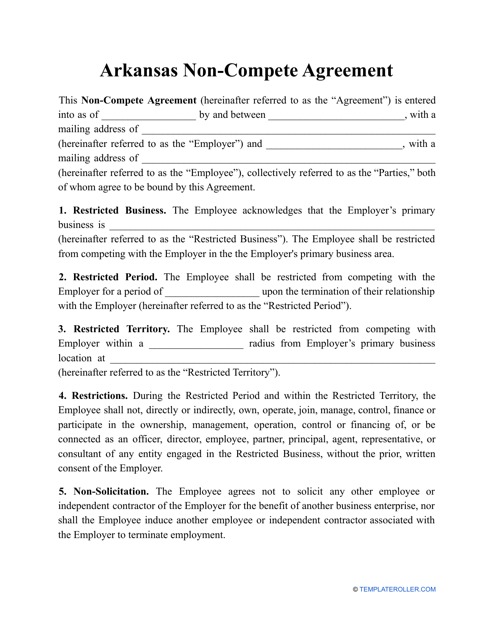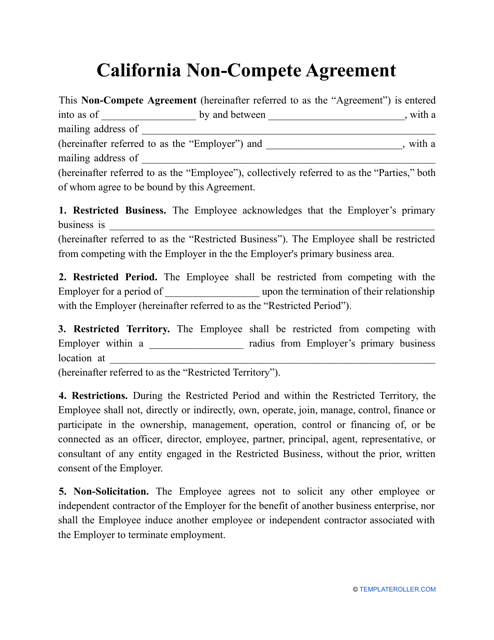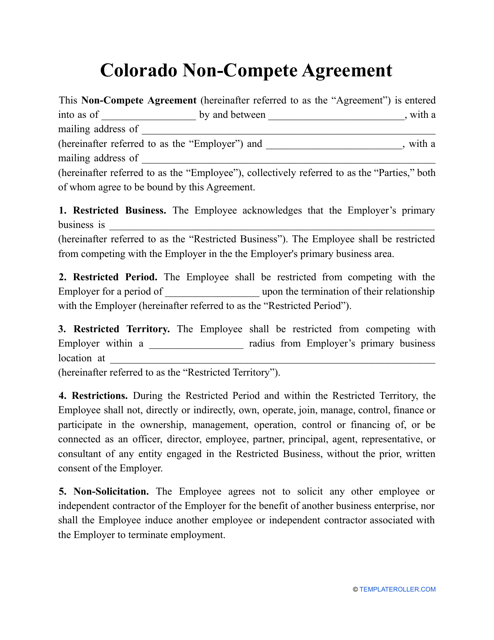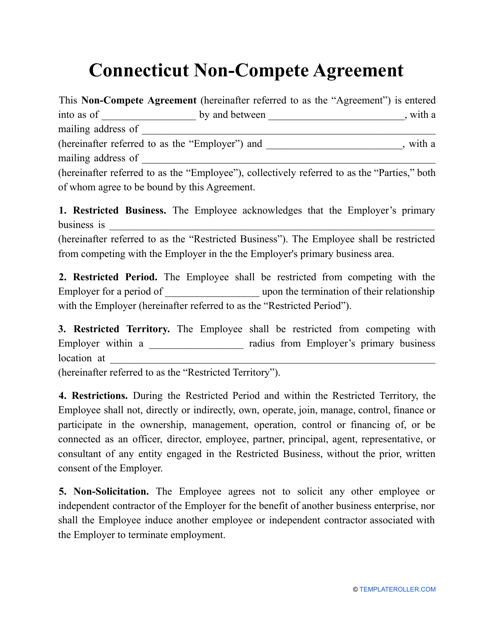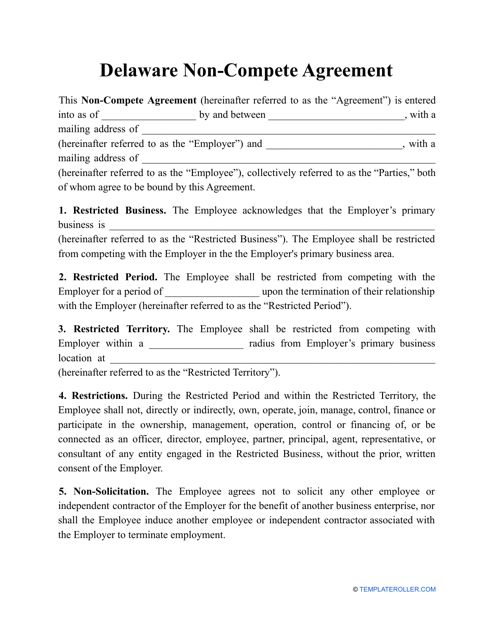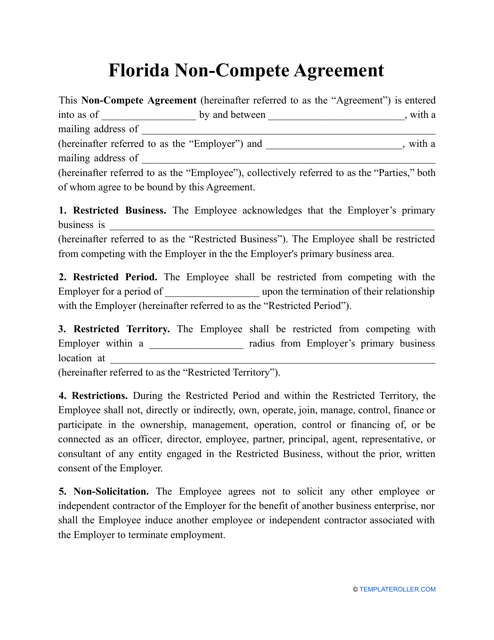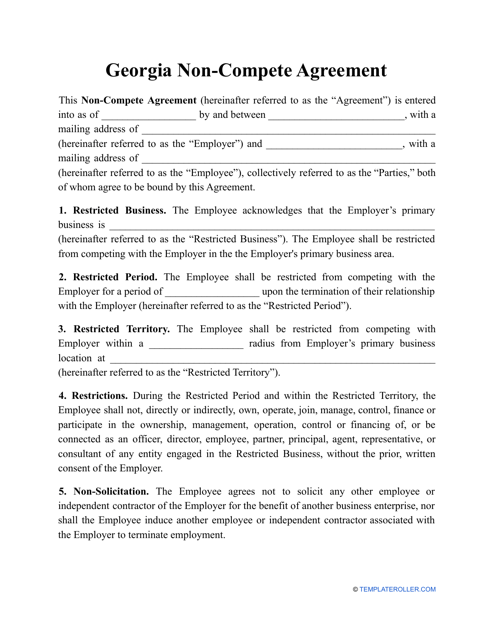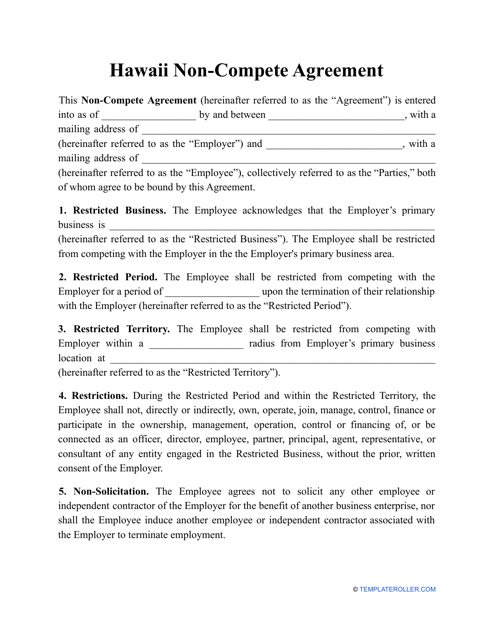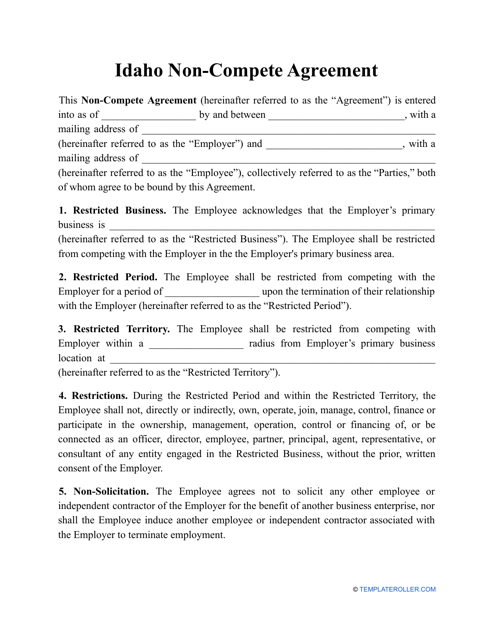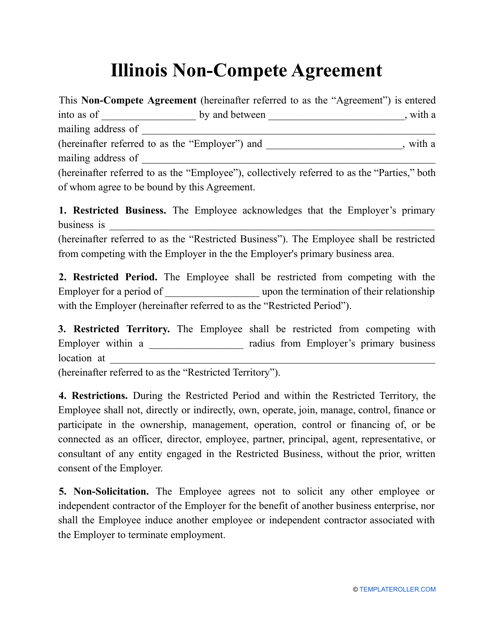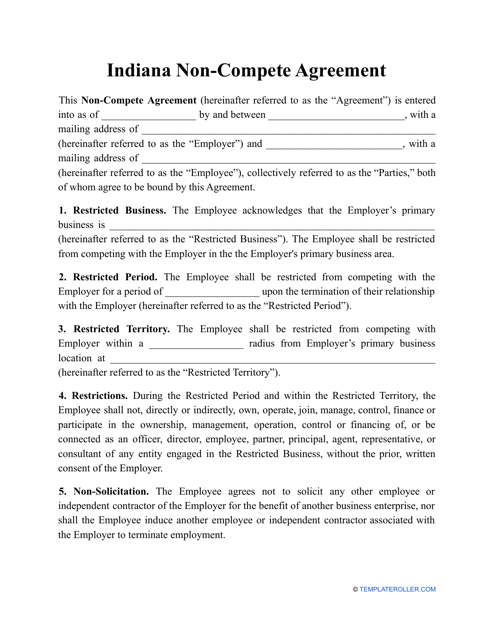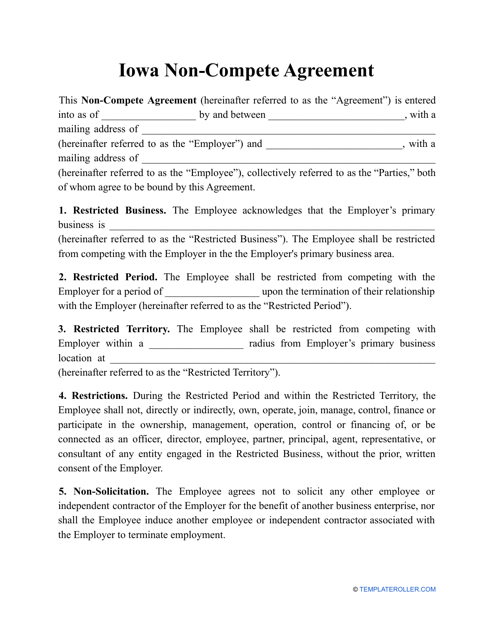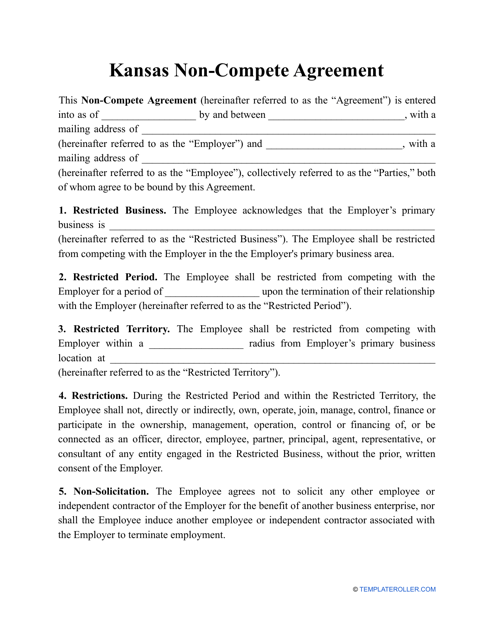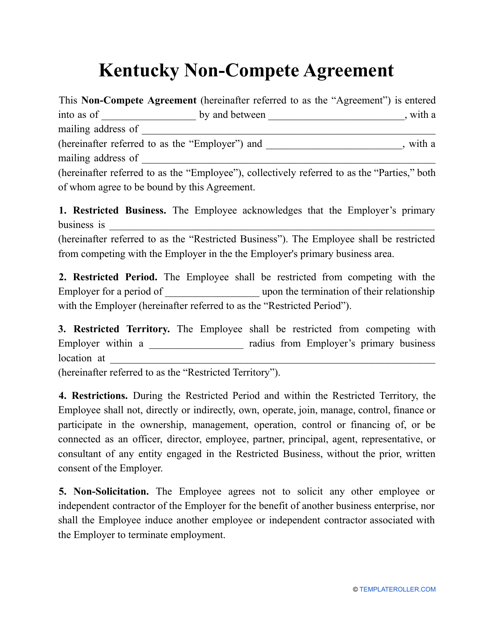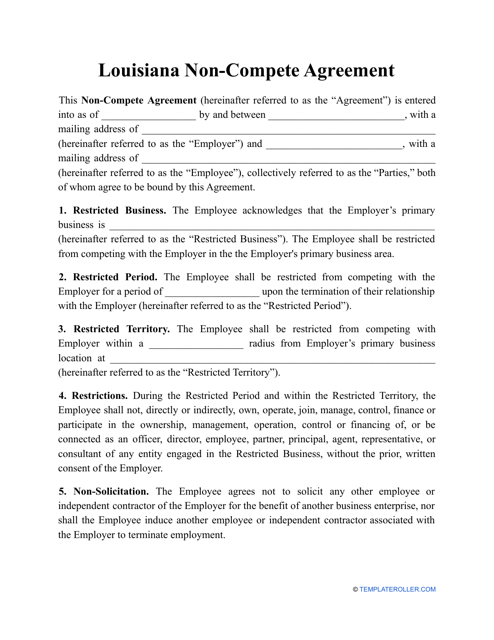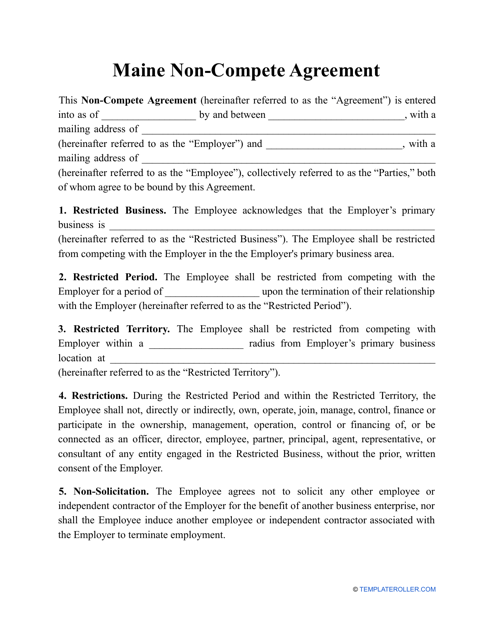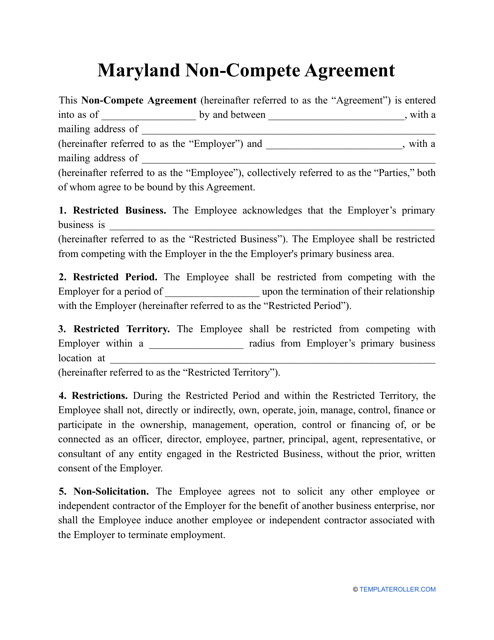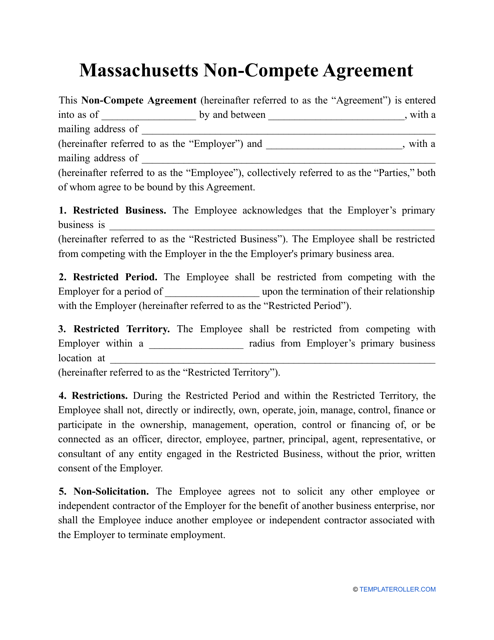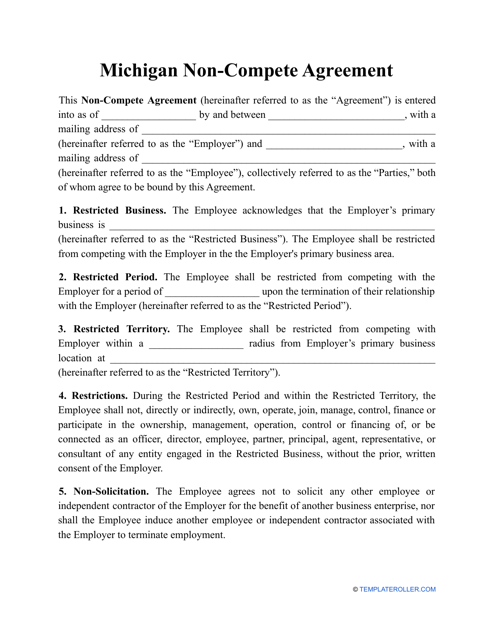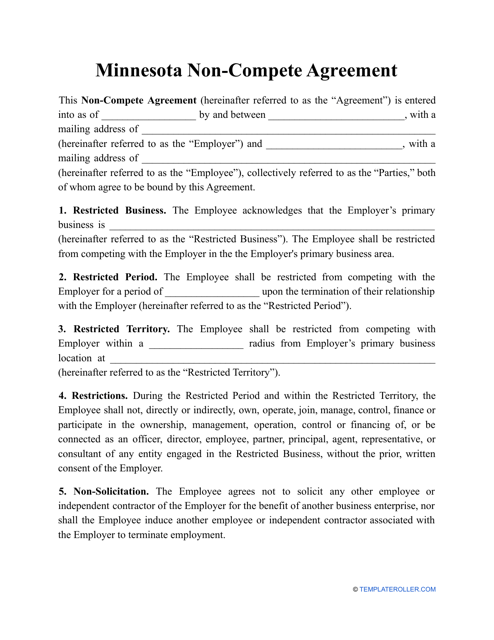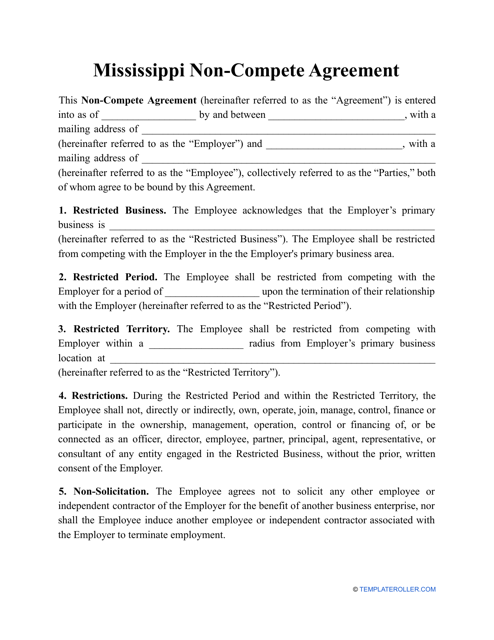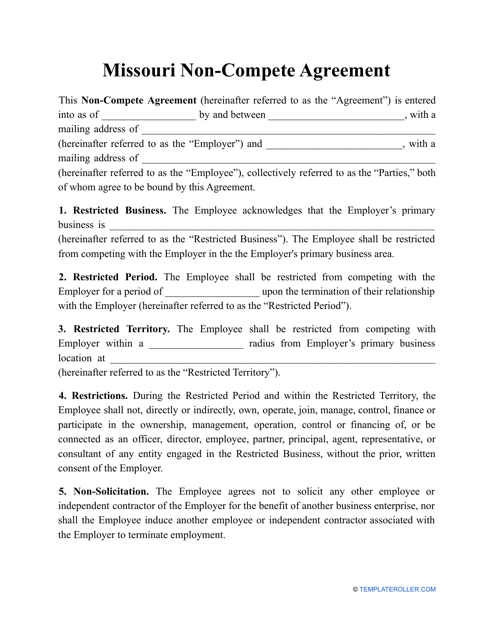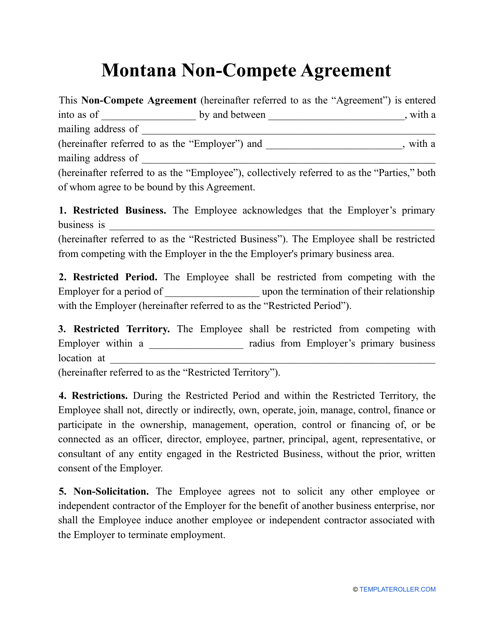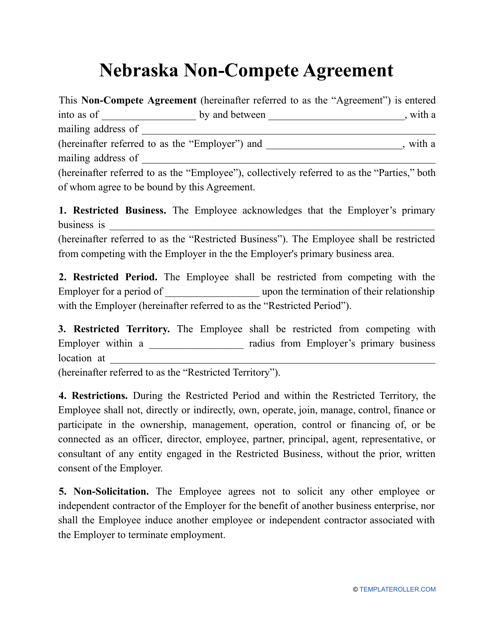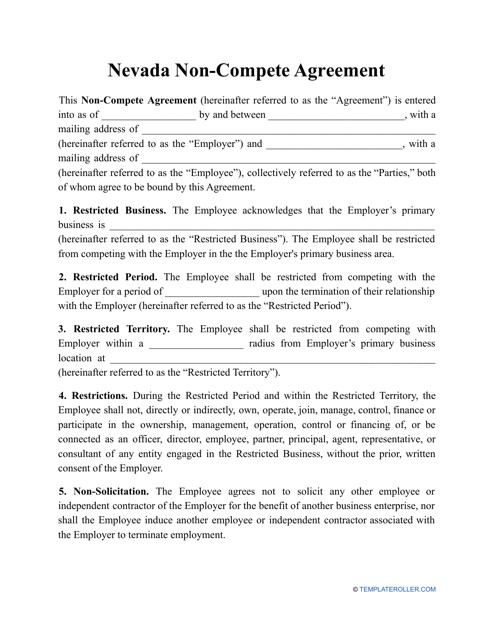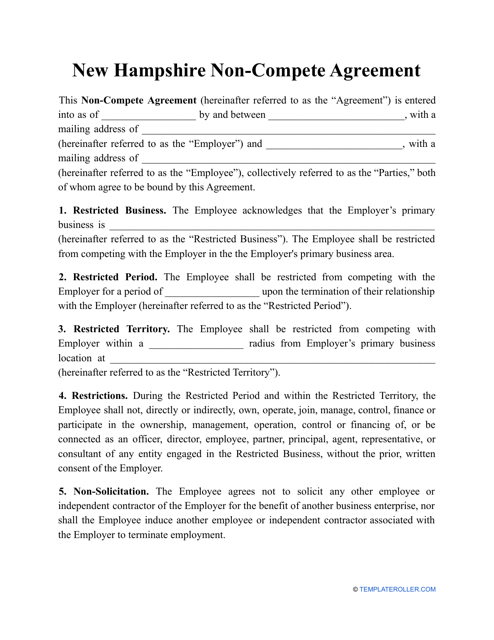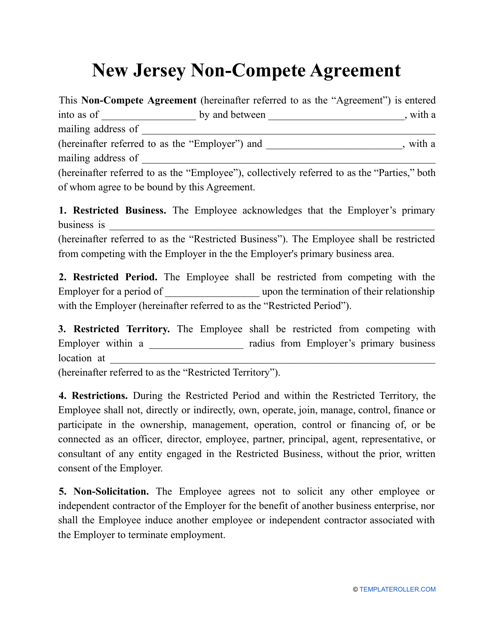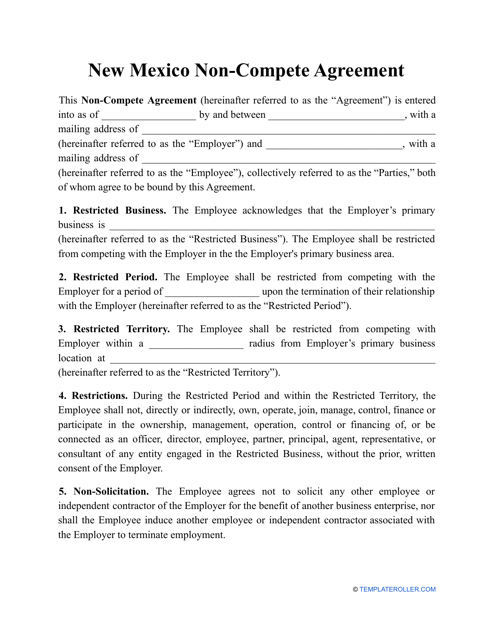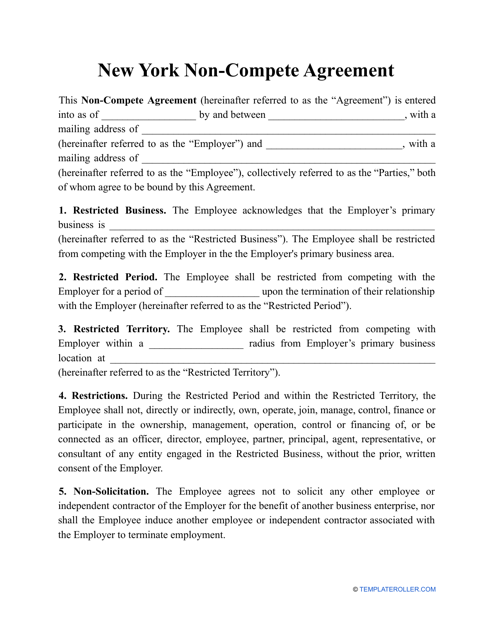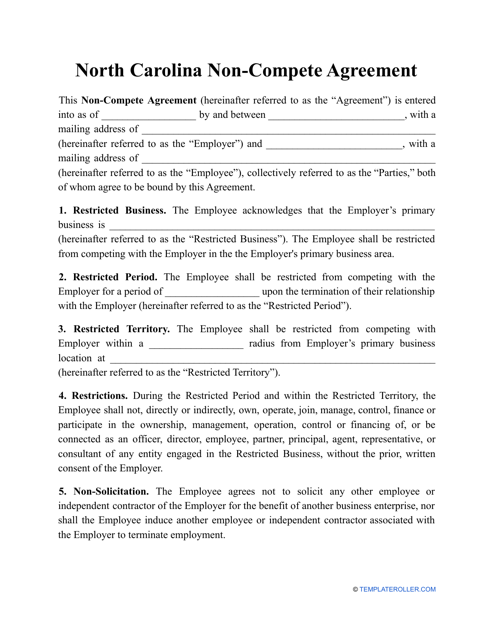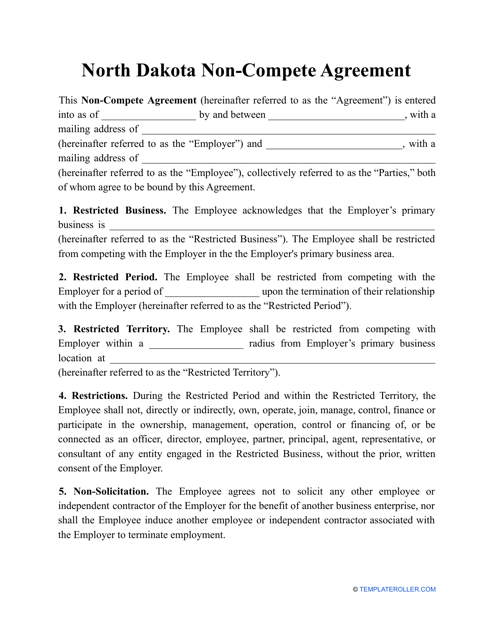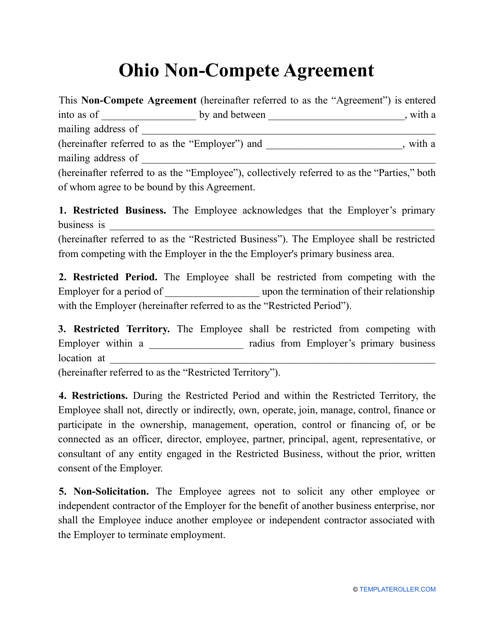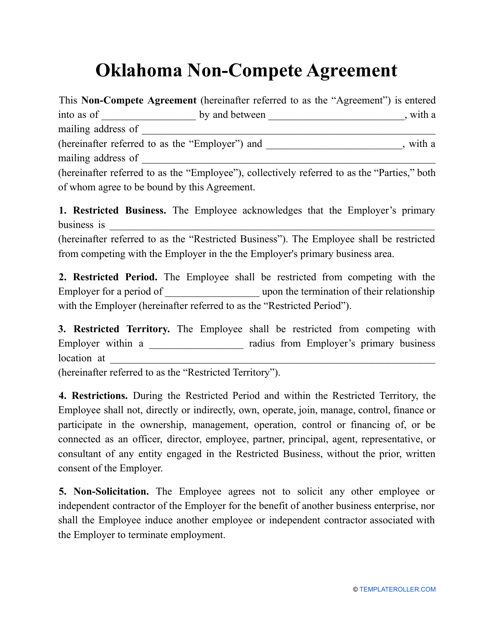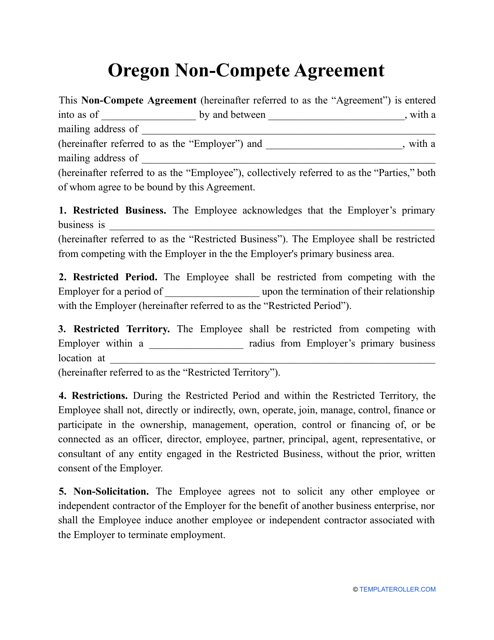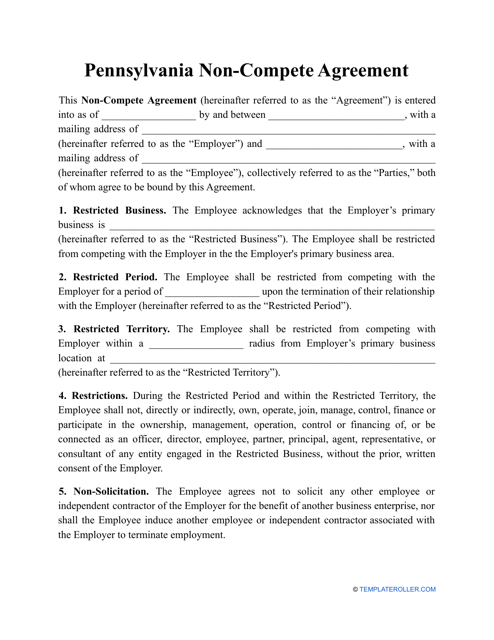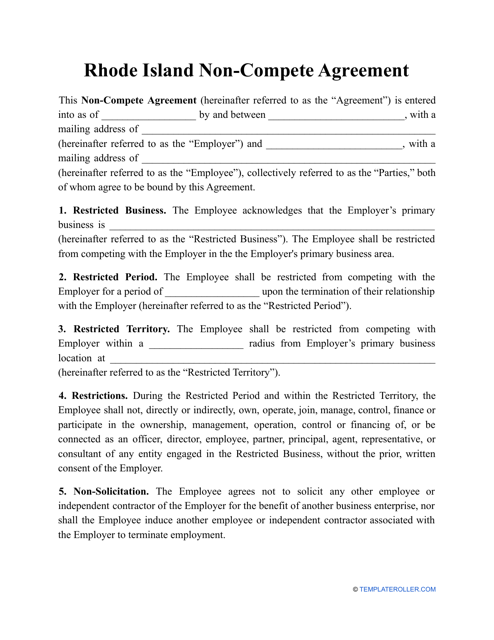Free Non-Compete Agreement Templates
What Is a Non-Compete Agreement?
A Non-Compete Agreement is a legally binding contract signed by the employee that gives their consent not to share information they have learned during their previous employment with the new company that hired them. To make sure the employer is well-protected keeping their place in the field and the employee does not disclose trade secrets with a competitor, you need to offer a Non-Compete Agreement Template to any valuable professional that is going to leave your company and possibly work in the same location.
Non-Compete Agreement Template by State
Before you draft a standard Non-Compete Agreement or say "yes" when your employer asks you to sign one while you are still working for the company, it is important to check the local regulations and make sure no one's rights are being violated. There are states that forbid the employers to offer this document to low-wage employees, and the jurisdiction is often limited - sometimes, the employer cannot dictate which states you will be permitted to work in. This is why you should select and customize a state-specific Non-Compete Agreement for Employees - see them below and choose the contract appropriate for your situation.
How to Get Out of a Non-Compete Agreement?
Here are some tips you may use when a Non-Compete Agreement interferes with your employment months and years after you terminate an employment agreement signed with your old employer:
-
Monitor the behavior of the employer . It is probable they violated the agreement failing to pay your compensation on time or contacting people you work with in the same field and bad-mouthing you in order to prevent you from getting the job you deserve. Besides, it is highly likely the employer will no longer have a reason to enforce the terms of the Non-Compete Agreement by changing the company policy or ending their professional relationship with certain customers.
-
Even if you could not manage to avoid signing the papers, in case this issue somehow has a negative impact on your future, you may still have a chance to prove the contract is unenforceable . For example, the compensation you received from the employer was not sufficient compared to the job opportunities you have had to decline or the duration of the agreement is unreasonable preventing you from getting a job you want especially if you worked for your former employer for a short time.
-
Some professionals, and this is quite common in health care, are allowed to be hired even if the provisions of the Non-Compete Agreement forbid them to get employed in a certain area . For instance, if your city has a shortage of surgeons capable of performing a complicated surgery, no contract you have signed with your ex-employer can prevent you from helping a patient.
What Happens If You Violate a Non-Compete Agreement?
If the individual breaches the terms of the Non-Compete Agreement signed during the employment termination process, the employer has a right to send them a formal complaint - a demand letter that requests them to fix the issue if possible - and later file a lawsuit to seek damages. In case the loss of profit the employer would otherwise obtain is proven in court, the person responsible for violating a contract may have to pay a large sum of money - moreover, it is likely you are going to lose your new job and damage your reputation especially if you are working in an industry where people know each other well.
How Does a Company Know If You Violate a Non-Compete Agreement?
There are various ways for the employer to learn you have been trying to avoid your responsibility to comply with the provisions of the legal Non-Compete Agreement:
-
The employer may contact the organization you work for or plan to work for in the nearest future . If they have a personal relationship with your new boss which is possible if you belong to the same industry or professionals like you are rare and well-known on the job market, they may reach out to the employer and prevent them from interviewing you or keeping you as an employee.
-
It is easy to contact the customers and find out whether the ex-employee has been reaching out to them offering their services . The clients in question may want to maintain a positive relationship with the employer and provide them with e-mails and call logs proving there was an attempt to steal or borrow a customer from a competitor.
-
If the wording of the simple Non-Compete Agreement allows this kind of measure, the employer may be entitled to know where their former employee is going to work for a considerable amount of time - from one to five years . The latter may have to warn the employer about their new job, and if the terms of employment breach the contract, the employer may need to protect their business interests.
How to Negotiate a Non-Compete Agreement?
Follow these steps to ensure a Non-Compete Agreement does not violate the interests of both parties during the crucial negotiations period:
-
Both the employer and the employee should talk to a lawyer before signing or refusing to sign a Non-Compete Agreement . While this is not a legal requirement and the agreement will be valid either way, take care of your future by consulting with an attorney specializing in labor law.
-
Depending on your job, experience, and the market demands for the employees of your caliber, you may need to check if the provisions of the agreement are fair and reasonable . For example, it will not make any sense to forbid an accountant to find employment in the same district of the city while a former top manager of the organization may not be allowed to be hired by a competitor.
-
Be careful with other restrictions and limitations - for instance, you may be asked to sign a non-disclosure agreement that will prohibit you from sharing confidential information you have learned during your employment . Only sign the documentation you are comfortable with, even if the amount of money offered by the employer seems generous at first.
Haven't found the template you're looking for? Take a look at the related templates below:
Documents:
51
This legal agreement is signed by employers and their employees to agree on the fact that the individual will not enter into competition with the company where they work, during or after their employment.
This type of agreement is used in Alabama and states that there is certain information relating to the business which cannot be shared by the employee.
In Alaska, this type of agreement is drafted for businesses that wish to contain certain information (mainly company secrets) behind closed doors.
This template is used in Arizona and is written up and signed when an employer wants to impose specific limitations on an employee in regards to working in the same position at a different company.
This is a document used in Arkansas that is signed by an employer and employee, which will prevent a former employer from seeking employment in a different company for a certain amount of time.
This type of agreement is used in California and states that there is certain information relating to the business which cannot be shared by the employee.
This template is used in Colorado and offers an additional layer of protection concerning company secrets and other confidential information.
In Connecticut, this type of agreement is drafted for businesses that wish to contain certain information (mainly company secrets) behind closed doors.
This template is used in Delaware and outlines certain mutual agreements in regards to actions that cannot be carried out by an employee once the employee has decided to leave their job.
This template ensures that any business registered in the state of Florida can draft up this agreement as a form of protection, protecting any company secrets or other relevant information that could damage a business if this information is leaked.
This type of template is used in Georgia so that an employee cannot use their obtained skills and confidential knowledge to work in the favor of another employer.
Residents of Hawaii may use this form as a written agreement between a company and any employees, potential employees, business partners, or even private contractors to help stipulate certain information that cannot be disclosed.
This template is used in Idaho and is written up to offer protection to a business, making sure that competitors or the general public do not find out about or use specific secret information related to the business.
This type of agreement is used in Illinois and states that there is certain information relating to the business which cannot be shared by the employee.
In Indiana, this agreement is used by a company at the very beginning of a working commitment with an employee, a potential employee, a company partner, or a contractor.
This template is used in Iowa and prevents company secrets from being exposed to the public and in particular, to fellow competitors.
This template is used in Kansas and outlines the specific terms that were agreed upon by a company and another party.
This template is used in Kentucky and allows any company to make sure that specific information that they do not want to be exposed to the outside world is kept confidential.
This type of agreement is used in Louisiana and states that there is certain information relating to the business which cannot be shared by the employee.
This type of template is used in Maine to document in writing the particular agreement that an employer has with an employee regarding classified information within the company.
Residents of Maryland may use this type of template as a safeguarding barrier, protecting confidential information surrounding a business for an agreed length of time after an employee has terminated their employment with the business.
This is a document used Massachusetta in which a business protects specific private information by excluding another party from sharing this information.
In Michigan, this type of agreement is drafted for businesses that wish to contain certain information (mainly company secrets) behind closed doors.
Residents of Minnesota may use this type of template as a way of keeping company secrets safe from disclosure to other parties that are not permitted to possess this knowledge.
This is a relatively common agreement used in Mississippi and signed by an employer and employee upon the employee commencing their new job.
This type of agreement is used in Missouri and states that there is certain information relating to the business which cannot be shared by the employee.
In Montana, this type of agreement is drafted for businesses that wish to contain certain information (mainly company secrets) behind closed doors.
In Nebraska, this type of template is used in companies that want to maintain specific information such as company secrets within the walls of the business.
This type of template is used in Nevada and signed by an employer and employee when the hiring party wants to make certain limitations on an employee.
This is a written document used in New Hampshire that is drafted and signed by an employer and employee which aims to stop any previous employees from finding jobs in the same sphere at a different company.
This type of agreement is used in New Jersey and states that there is certain information relating to the business which cannot be shared by the employee.
This type of template is used in New Mexico and can offer another form of additional protection that relates to classified information within a business structure.
If you are a resident of New York this type of template can be used for businesses that wish to contain certain information (mainly company secrets) behind closed doors.
This type of template is used in North Carolina and describes in detail the various mutual agreements that were reached regarding information that cannot be disclosed by the employee once they leave their job.
This type of agreement is used in North Dakota and states that there is certain information relating to the business which cannot be shared by the employee.
In Ohio, this type of agreement is drafted for businesses that wish to contain certain information behind closed doors.
This type of agreement is used in Oklahoma and states that there is certain information relating to the business which cannot be shared by an employee.
This template is used in Oregon to protect a company, ensuring that any potential company rivals or the public are not made aware of any discreet company information that could be damaging if exposed.
This type of template is used in Pennsylvania to help secure a business by limiting an employee from disclosing certain confidential information.
This type of template is used in Rhode Island and acts as confirmation that all of the involved parties agree to keep specific information in strict confidentiality for a fixed amount of time, after terminating employment with the employer.

